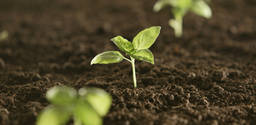Garden irrigation systems: drip or spray irrigation systems?

Garden irrigation systems: drip or spray irrigation systems?
In a drip irrigation system, water is deposited straight to the root area in regular amounts through tubing. One of the main benefits of drip irrigation systems is their water saving capabilities. Drip irrigation uses up to 50% less water than other irrigation systems, which saves water expenses and is an environmentally conscious choice. This is because the water is delivered directly to the soil level, which drastically reduces waste of water and allows for more effective utilisation of the water that is available.
A disadvantage of drip irrigation systems is their need for constant maintenance. The filters in drip irrigation system need to be regularly flushed to prevent blockages from building up. Drip irrigation systems also need to be monitored for animal damage.
Spray irrigation systems are composed of sprinklers, valves and a controller and come in two main varieties. Pop-up style systems are installed below ground and only come above the soil line when the controller activates the sprinklers. The second main variety is known as shrub-style systems, which are situated above ground on vertical pipes and are perfect for distributing water to thick shrubbery.
A major advantage of using spray systems is that they are customisable and can be modified to include rain-detection capabilities, which automatically shut down the water supply of the irrigation system in rainy weather to reduce water waste. Soil moisture detectors are another modification available to spray systems. These analyse the water content of the surrounding soil to manipulate how much water the system delivers. A disadvantage of spray systems is that their use is limited to certain types of terrain. Sloped lawns or lawns with uneven terrain are not suited to this type of irrigation system as flat, even surfaces are needed for the system to deliver water effectively.
